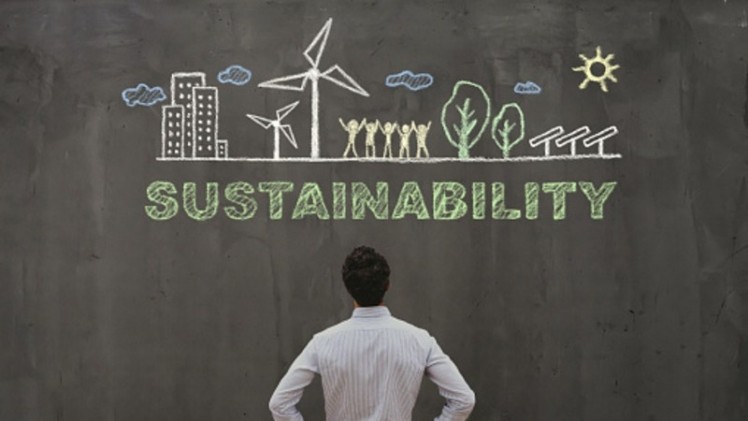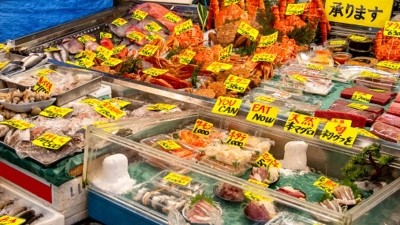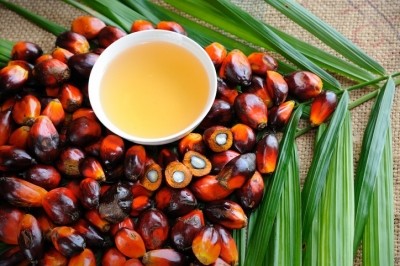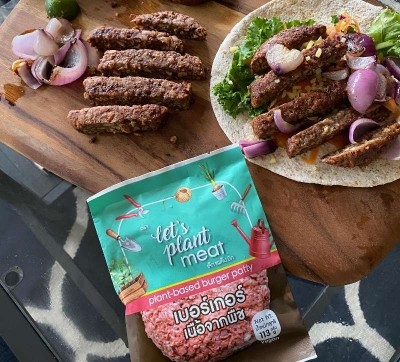Sustainability Snippets: Impacts of sustainability concerns on the edible insect, seafood and palm oil sectors feature in our round-up

Big bug boom: Health and sustainability biggest drivers as APAC governments increase backing for million-dollar edible insect industry
Governments and food industry players across the Asia Pacific region are providing increasing support to the insect-based food industry as an alternative protein source from South Korea to Australia, all touting health and sustainability as the sector’s biggest drivers.
The global edible insect industry is expected to increase in value to hit over US$1bn by 2023, with over 2,100 insect species eaten as food in hundreds of countries worldwide. Western countries such as the United States and Europe are leading this in terms of value, but within the Asia Pacific region, research analysts still predict this market to hit US$270 million by 2024.
In Australia, the government is pitching insect protein to consumers as a ‘nutritious, sustainable and ethical’ source of alternative protein, where Australian national science agency CSIRO and the Australian Department of Foreign Affairs and Trade (DFAT) have co-funded the development of a national roadmap dubbed Edible insects: A roadmap for the strategic growth of an emerging Australian industry.
“Australia has a high diversity of native insects. Working with First Nations (indigenous) enterprises, many species have the potential to be sustainably harvested or grown in low impact farms, to be turned into new and delicious Australian foods,” said CSIRO entomologist Dr Bryan Lessard.
Stemming the tide: Challenged Japanese seafood sector urged to prioritise sustainable measures to maintain profitability
Japanese seafood firms have been urged to employ strategies where sustainability and financial profitability are linked in order to counteract downward industry trends and avoid both environmental and financial failure.
According to a new seafood industry report focused on Japan by financial think tank Planet Tracker dubbed ‘Against The Tide’, Japan’s seafood industry is facing a major challenge - Too much natural capital (such as fish supply) has been depleted, whereas Japanese seafood firms have been relying on financial tactics such as foreign expansion, vertical integration, cost-cutting and so on to bypass these – but will not be able to hold out for much longer.
“Seafood stocks, suply and demand in Japan have all seen a drop, yet between 2010 and 2019, the seafood companies we researched in this report have all reported rising profits and share prices,” report lead author Francois Mosnier told FoodNavigator-Asia.
“This is due to the employment of various strategies by companies’ management [but] most strategies that these firms have employed to avoid financial issues coming to the surface so far have more or less run their course.”
Palm oil challenges in the West: EU ambassador insists sustainability is non-negotiable for consumers
Consumers in the EU are ‘demanding sustainability’ when it comes to palm oil and related food products, according to an EU ambassador, fanning the flames of ongoing strife with palm oil producing countries in the ASEAN region.
The European Union (EU) and palm oil producing countries such as Indonesia and Malaysia have been at loggerheads for some years now over continuing opposition by the EU to palm oil, citing claims of unsustainability which have been vehemently protested by the producers.
FoodNavigator-Asia recently asked EU Ambassador to Singapore Barbara Plinkert about the EU’s controversial Farm-to-Fork (F2F) strategy and how palm oil would be affected within this – Ambassador Plinkert emphasised that there are ‘no bans’ on palm oil or products containing this within the EU.
“The F2F strategy [developed by the European Commission] is an integrated approach to food safety, covering all sectors of the food chain [from] primary production to processing to retail and foodservice and everything within,” she told us.
“Like in the case of organic produce or other sustainability schemes, consumers in the EU are however demanding sustainable palm oil and guarantees that palm oil does not come from plantations, which cause deforestation. [So] more than a concern, there is a business opportunity to make sure that palm oil or other ingredients of agri-food products are sourced in a sustainable manner.”
‘Understanding the seafood supply web’: Thai Union on why traceability is the ‘backbone’ of latest sustainability plan
Global seafood giant Thai Union has pinpointed traceability to be the ‘backbone of sustainability’ in its upcoming sustainable seafood strategy, SeaChange 2025, with a strong emphasis on tech transformation.
Thai Union’s global sustainability strategy SeaChange was first launched in 2016, and is now entering its second iteration – SeaChange 2025 - as the firm looks to wrap up and report on the previous one, which was Seachange 2020.
According to Thai Union Global Director for Corporate Affairs and Sustainability Dr Darian McBain, as the firm makes plans for SeaChange 2025, one thing that is for sure is that traceability is going to be a major part of the new strategy.
“Traceability is to us the very backbone of sustainability in the Seachange strategy, and this will also be reflected in SeaChange 2025,” she told FoodNavigator-Asia.
Balancing food safety and sustainability: Demand for secure, resealable packaging skyrockets amidst COVID-19 – Tetra Pak
The COVID-19 pandemic has driven up demand for food and beverage packaging that is secure and resealable as food safety and security concerns rise, according to a new report by packaging heavyweight Tetra Pak.
According to the Tetra Pak Index Report 2020 which surveyed over 9,000 consumers worldwide to assess current consumer concerns, COVID-19 emerged as the top concern (64%) when it comes to current consumer priorities in 2020, exacerbating concerns about food safety and security and beating out environmental sustainability concerns from 63% in 2019 to 49%.
“COVID-19 has significantly focused attention on hygiene and food safety, with more than two-thirds (68%) of consumers worldwide now believing that food safety is a major concern for society,” Tetra Pak Managing Director for Malaysia, Singapore, Philippines and Indonesia Michael Wu told FoodNavigator-Asia.
“[However], as the appetite for change and opportunities to ‘build back better’ post pandemic grows amongst consumers, concern for the environment remains strong - About 42% said they were concerned about environmental issues and 52% believed that sustainable packaging is a high priority for companies to tackle.
“This suggests an appetite for responsible packaging solutions, helping consumers to address the dilemma they face between food safety and the environment.”











